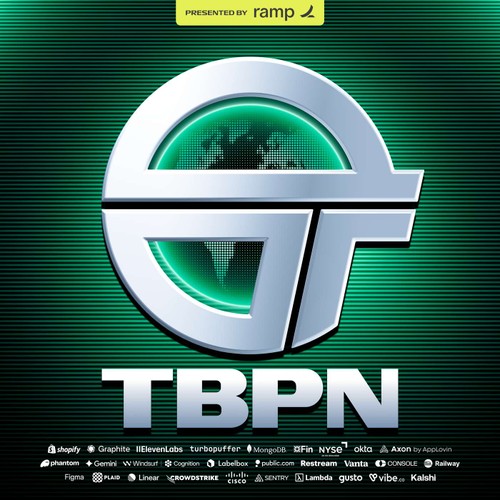- (00:54) - LIVE Slop vs. Steel Debate w/ Delian & Everett. Delian Asparouhov, a Bulgarian-born entrepreneur and venture capitalist, is a partner at Founders Fund and co-founder of Varda Space Industries. Everett Randle is a partner at Kleiner Perkins, where he focuses on inflection-stage investments in tech startups. He rejoined the firm in 2022 after stints at Founders Fund—where he backed companies like Rippling, Wave, Stord, and Chronosphere—as well as earlier roles at Bond Capital and Vista Equity Partners.
- (33:36) - Timeline
- (42:06) - GPT-5 Backlash
- (01:03:08) - Deepseek's Next AI Model Delayed
- (01:10:42) - Timeline
- (01:13:04) - Trump Considers Stake in Intel
- (01:23:56) - Timeline
- (01:27:48) - Bill Bishop, co-founder of CBS MarketWatch and author of the Sinocism newsletter, is a seasoned China analyst with extensive experience living and working in Beijing. In the conversation, he critiques the U.S. strategy of selling Nvidia's H20 AI chips to China, arguing that it inadvertently aids China's goal of technological self-reliance by allowing them to bridge gaps in their domestic capabilities. Bishop emphasizes that China's Communist Party is committed to reducing dependence on foreign technology, and U.S. policies facilitating chip sales may ultimately undermine America's competitive edge in AI development.
- (01:45:23) - Jimmy Goodrich, a leading expert on technology, geopolitics, and national security with a focus on China and East Asia, discusses the complexities of U.S. export controls on semiconductors to China, highlighting how these measures often lead to stockpiling by Chinese companies and are perceived as inconsistent by Beijing. He emphasizes the significant value of Nvidia's H20 chip for China's AI development, noting its cost-effectiveness and the widespread use of Nvidia's CUDA platform among Chinese developers. Goodrich also expresses concerns about the potential national security risks associated with providing advanced computing capabilities to China, including their applications in cyber warfare and disinformation campaigns.
- (02:01:12) - Lennart Heim, an associate information scientist at RAND and professor of policy analysis at the Pardee RAND Graduate School, focuses on the role of computational resources in advanced AI systems and their governance. In the conversation, he discusses the complexities of the semiconductor supply chain, highlighting the dominance of companies like TSMC and ASML in chip fabrication and the challenges faced by competitors such as Intel. He also explores the potential of cloud computing as a governance tool, suggesting that centralized control over AI compute resources could enhance security and oversight.
- (02:14:00) - David Stout, founder and CEO of webAI, discusses the company's focus on developing AI models that operate directly on devices, enhancing privacy and reducing reliance on cloud infrastructure. He highlights their proprietary technology stack, including a runtime engine and AI library, which enables running large models on local hardware like laptops. Stout also addresses the importance of memory in AI performance, advocating for increased RAM in devices to support more efficient on-device inference.
- (02:30:53) - Cameron Schiller, CEO of Rangeview, discusses the company's mission to revitalize American manufacturing through automated aerospace foundries, emphasizing the need for a national resurgence in industrial production to address both economic and security concerns. He highlights the importance of traditional manufacturing methods like casting, advocating for their modernization to enhance efficiency and scalability. Schiller also reflects on his personal journey, influenced by his father's engineering background, and calls for a collective effort to rebuild the nation's manufacturing capabilities.
- (02:42:20) - Cyriac Roeding, a Silicon Valley-based German-American entrepreneur, is the co-founder and CEO of Earli, a company focused on early cancer detection and treatment. In the conversation, Roeding discusses Earli's innovative approach of using genetic constructs that activate only in cancer cells, compelling them to produce proteins that either make the cancer visible or stimulate the immune system to attack it. He also highlights the challenges in biotech funding, emphasizing the need for a national commitment to maintain U.S. leadership in biotechnology.
- (02:49:09) - NFM Live is a podcast series produced by NFM TV, a platform that delivers mortgage industry news and insights. In this episode, the hosts discuss their backgrounds in venture capital, their experiences in the Korean tech market, and their plans to expand their podcast to reach a global audience. They also share their aspirations to feature prominent guests, including venture capitalists, engineers, authors, and even political figures, aiming to build a unique brand in the media landscape.
TBPN.com is made possible by:
Ramp - https://ramp.com
Figma - https://figma.com
Vanta - https://vanta.com
Linear - https://linear.app
Eight Sleep - https://eightsleep.com/tbpn
Wander - https://wander.com/tbpn
Public - https://public.com
AdQuick - https://adquick.com
Bezel - https://getbezel.com
Numeral - https://www.numeralhq.com
Polymarket - https://polymarket.com
Attio - https://attio.com/tbpn
Fin - https://fin.ai/tbpn
Graphite - https://graphite.dev
Restream - https://restream.io
Profound - https://tryprofound.com
Julius AI - https://julius.ai
Follow TBPN:
https://TBPN.com
https://x.com/tbpn
https://open.spotify.com/show/2L6WMqY3GUPCGBD0dX6p00?si=674252d53acf4231
https://podcasts.apple.com/us/podcast/technology-brothers/id1772360235
https://www.youtube.com/@TBPNLive

 TBPN
TBPN 







